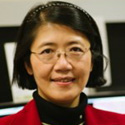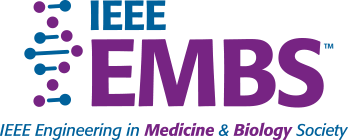IEEE Women in Engineering will be hosting a luncheon at the coming IEEE EMBC’17 on July 14th, 2017 (Friday). We will be hosting five inspiring speakers with diverse backgrounds, genders, and ethnicities: Prof. Nigel Lovell (President of IEE EMBS), Prof. May Wang (Georgia Institute of Technology, USA), Prof. Laura Astolfi (Sapienza University of Rome, Italy), Prof. Allison Okamura (Stanford University, USA), and Prof. Jennifer H. Shin (KAIST, Korea). Speakers will share the ups and downs of their career and provide insightful guidance for young women paving their career in biomedical engineering and science. Topics to be covered include: “How to be successful as a women engineer – lessons learned and tips” and “how should one balance a focus on research excellence with service to the university, the research community, and the public?” Participants of this luncheon will be able to meet and speak with these amazing speakers and network with their own peers. Please join us for this exciting networking event!
Speaker Information
 Laura Astolfi, Ph.D. received her Master Degree in Electronics Engineering from University of Rome in 2003 and her PhD in Biomedical Engineering from University of Bologna in 2007. Currently, she is an Assistant Professor at the Department of Computer, Control, and Management Engineering at Sapienza University of Rome, where she is responsible for the Laboratory of Bioengineering and Bioinformatics. She also serves as Technical Manager at Fondazione Santa Lucia Hospital, Rome, Italy. She is in the Editorial Board of International Journals like Brain Topography, the Journal of Physiology-Paris and Computational Intelligence and Neuroscience. She is currently Chair of the Technical Committee on Biomedical Signal Processing of IEEE EMBS (2016/2017), Chair for Track 1 (Biomedical Signal Processing, 2013, 2017) and Associate Editor for Track 6 (Neural Systems and Rehabilitation Engineering, 2010-today) of the IEEE EMBC conference and member of the Student Paper Competition Committee for EMBC and NER conferences (2013-today). She has organized Educational Courses at EMBC and other related International Conferences and Schools.She participated in several national (Ministry of Health, Ministry of University, Private Foundations) European (7th FPs) and US (NSF and NIH) funded research projects. She has been National Representative to 2 EU COST Actions. She is currently the PI of a MIUR funded project FIRB “Brain-to-brain connectivity from simultaneous neuroelectric and autonomic multi-subjects recordings as a new tool to study human social interaction”.Her research activity include brain connectivity, high resolution EEG source reconstruction, EEG applications to neurorehabilitation, simultaneous recordings from multiple subjects (hyperscanning), consciousness, cognition and social Neuroscience.She is Junior Fellow of the Sapienza School for Advanced Studies, Class of Science and Technology.
Laura Astolfi, Ph.D. received her Master Degree in Electronics Engineering from University of Rome in 2003 and her PhD in Biomedical Engineering from University of Bologna in 2007. Currently, she is an Assistant Professor at the Department of Computer, Control, and Management Engineering at Sapienza University of Rome, where she is responsible for the Laboratory of Bioengineering and Bioinformatics. She also serves as Technical Manager at Fondazione Santa Lucia Hospital, Rome, Italy. She is in the Editorial Board of International Journals like Brain Topography, the Journal of Physiology-Paris and Computational Intelligence and Neuroscience. She is currently Chair of the Technical Committee on Biomedical Signal Processing of IEEE EMBS (2016/2017), Chair for Track 1 (Biomedical Signal Processing, 2013, 2017) and Associate Editor for Track 6 (Neural Systems and Rehabilitation Engineering, 2010-today) of the IEEE EMBC conference and member of the Student Paper Competition Committee for EMBC and NER conferences (2013-today). She has organized Educational Courses at EMBC and other related International Conferences and Schools.She participated in several national (Ministry of Health, Ministry of University, Private Foundations) European (7th FPs) and US (NSF and NIH) funded research projects. She has been National Representative to 2 EU COST Actions. She is currently the PI of a MIUR funded project FIRB “Brain-to-brain connectivity from simultaneous neuroelectric and autonomic multi-subjects recordings as a new tool to study human social interaction”.Her research activity include brain connectivity, high resolution EEG source reconstruction, EEG applications to neurorehabilitation, simultaneous recordings from multiple subjects (hyperscanning), consciousness, cognition and social Neuroscience.She is Junior Fellow of the Sapienza School for Advanced Studies, Class of Science and Technology.
 Allison Okamura, Ph.D. is a Professor in the Department of Mechanical Engineering at Stanford University with research interests in haptics, teleoperation, virtual environments and simulators, medical robotics, neuromechanics and rehabilitation, and education. She has been editor-in-chief of the IEEE International Conference on Robotics and Automation Conference Editorial Board, an editor of the International Journal of Robotics Research, co-chair of the IEEE Haptics Symposium, and associate editor of the IEEE Transactions on Haptics. Her awards include the 2016 Duca Family University Fellow in Undergraduate Education at Stanford, the 2009 IEEE Technical Committee on Haptics Early Career Award, the 2005 IEEE Robotics and Automation Society Early Academic Career Award, and the 2004 NSF CAREER Award. She is an IEEE Fellow. Outside academia, she enjoys spending time with her husband and two children, running, and playing ice hockey.
Allison Okamura, Ph.D. is a Professor in the Department of Mechanical Engineering at Stanford University with research interests in haptics, teleoperation, virtual environments and simulators, medical robotics, neuromechanics and rehabilitation, and education. She has been editor-in-chief of the IEEE International Conference on Robotics and Automation Conference Editorial Board, an editor of the International Journal of Robotics Research, co-chair of the IEEE Haptics Symposium, and associate editor of the IEEE Transactions on Haptics. Her awards include the 2016 Duca Family University Fellow in Undergraduate Education at Stanford, the 2009 IEEE Technical Committee on Haptics Early Career Award, the 2005 IEEE Robotics and Automation Society Early Academic Career Award, and the 2004 NSF CAREER Award. She is an IEEE Fellow. Outside academia, she enjoys spending time with her husband and two children, running, and playing ice hockey.
 Jennifer H. Shin, Ph.D. is an associate professor in Mechanical Engineering Department at Korea Advanced Institute of Science and Technology (KAIST). She received B.S., M.S., and Ph.D. in the field of biophysics in Mechanical Engineering Department at MIT in 1998, 2000, and 2004, respectively. After that, she worked as a postdoctoral associate in School of Engineering and Applied Sciences (SEAS) at Harvard University before she started her career at KAIST in 2005. Dr. Shin’s research interests center around the emerging interdisciplinary mechanobiology.
Jennifer H. Shin, Ph.D. is an associate professor in Mechanical Engineering Department at Korea Advanced Institute of Science and Technology (KAIST). She received B.S., M.S., and Ph.D. in the field of biophysics in Mechanical Engineering Department at MIT in 1998, 2000, and 2004, respectively. After that, she worked as a postdoctoral associate in School of Engineering and Applied Sciences (SEAS) at Harvard University before she started her career at KAIST in 2005. Dr. Shin’s research interests center around the emerging interdisciplinary mechanobiology.
She served as a member of the Presidential Advisory Council on Science and Technology (2008-2012) and has been an active board member for 7 academic societies across the fields of core mechanical engineering and biomedical engineering. She has been a leading member to organize several international symposiums and workshops, and also served a committee member of international conferences including Biofabrication, microTAS, IBEC, ISPIV, and IEEE-EMBC. In particular, Dr. Shin displays genuine passion and enthusiasm for teaching students and was recognized with several teaching excellence awards both at the departmental and institutional levels. As a woman faculty in mechanical engineering, she has shown commitments to supporting female students in the field of science and technology through her active contributions in Korean Federation of Women’s Science and Technology Association (KOFWST) and Women in Science, Engineering and Technology (WiTeck) in Korea.
 Nigel Lovell, Ph.D. is currently a Scientia Professor at the Graduate School of Biomedical Engineering, University of New South Wales (UNSW) working in the areas of bionics, biomonitoring and physiological modelling.
Nigel Lovell, Ph.D. is currently a Scientia Professor at the Graduate School of Biomedical Engineering, University of New South Wales (UNSW) working in the areas of bionics, biomonitoring and physiological modelling.
His research and development work has covered areas of expertise ranging from web-enabling technologies, database design, biomedical instrumentation, biological signal processing, neurophysiology and physiological modeling. His principal research interests have been focused in the application of appropriate technology in primary health care and design of a bionic eye. He has published 550+ journal articles, books, chapters, patents, refereed proceedings and abstracts. He is a board member of the journal ‘Physiological Measurement’, a founding board member of the ‘Journal of Neural Engineering’ and an Associate Editor of ‘Transactions on Information Technology in Biomedicine’.
He is currently President (2017-2018) of the Institution of Electrical and Electronic Engineers (IEEE) Engineering in Medicine and Biology Society (EMBS) which is the world’s largest member-based biomedical engineering professional organisation. He is a Fellow of seven learned academies throughout the world and has been awarded over $80 million in research, consultancy and infrastructure funding in his career.
 Dr. May Dongmei Wang is a full professor in the Joint Biomedical Engineering Department of Georgia Tech and Emory University, a Kavli Fellow, a Georgia Cancer Coalition Scholar, Georgia Tech Petit Institute Faculty Fellow, and a Fellow of the American Institute for Biological and Medical Engineering (AIMBE). She received BEng from Tsinghua University in China, MS and PhD from Georgia Institute of Technology in USA. Her research is in Biomedical Big Data Analytics with a focus on Biomedical and Health Informatics (BHI) for predictive, personalized, and precision health (pHealth). In FDA-organized MAQC international consortium, she led the comprehensive RNA-Seq data analysis pipeline study. Dr. Wang has delivered more than 200 invited and keynote lectures, and published over 200 papers in peer-reviewed conference proceedings and journals such as Briefings in Bioinformatics, Journal of American Medical Informatics Association, PNAS, Annual Review of Medicine, Nature Protocols, Circulation Genetics, IEEE Trans. on Biomedical Engineering (TBME), BMC Bioinformatics, IEEE/ACM Transactions on Computational Biology and Bioinformatics, IEEE Journal of Biomedical and Health Informatics (JBHI), Journal of Pathology Informatics etc.). She received Outstanding Faculty Mentor Award for Undergraduate Research at Georgia Tech, and a MilliPub Award (for a high-impact paper that has been cited over 1,000 times) from Emory University.
Dr. May Dongmei Wang is a full professor in the Joint Biomedical Engineering Department of Georgia Tech and Emory University, a Kavli Fellow, a Georgia Cancer Coalition Scholar, Georgia Tech Petit Institute Faculty Fellow, and a Fellow of the American Institute for Biological and Medical Engineering (AIMBE). She received BEng from Tsinghua University in China, MS and PhD from Georgia Institute of Technology in USA. Her research is in Biomedical Big Data Analytics with a focus on Biomedical and Health Informatics (BHI) for predictive, personalized, and precision health (pHealth). In FDA-organized MAQC international consortium, she led the comprehensive RNA-Seq data analysis pipeline study. Dr. Wang has delivered more than 200 invited and keynote lectures, and published over 200 papers in peer-reviewed conference proceedings and journals such as Briefings in Bioinformatics, Journal of American Medical Informatics Association, PNAS, Annual Review of Medicine, Nature Protocols, Circulation Genetics, IEEE Trans. on Biomedical Engineering (TBME), BMC Bioinformatics, IEEE/ACM Transactions on Computational Biology and Bioinformatics, IEEE Journal of Biomedical and Health Informatics (JBHI), Journal of Pathology Informatics etc.). She received Outstanding Faculty Mentor Award for Undergraduate Research at Georgia Tech, and a MilliPub Award (for a high-impact paper that has been cited over 1,000 times) from Emory University.
Professor Wang has served as an Emerging Area Editor for Proceedings of the National Academy of Sciences (PNAS), Senior Editor for IEEE JBHI, an Associate Editor for IEEE TBME, and a panelist in various grant review panels in NIH, NSF, Canada, and Europe. She has been serving in IEEE Big Data Initiative (BDI) Steering Committee, and helped organize IEEE International Conference on Biomedical and Health Informatics, 2016 EMBS annual conference, and ACM Bioinformatics, Computational Biology and Health Informatics Conferences. She has been elected as Vice Chair for 2018 Gordon Research Conference (GRC) in Advanced Health Informatics, and has been elected as VP Finance for IEEE Engineering in Medicine and Biology Society in 2017.
Professor Wang is Georgia Tech Biomedical Informatics Program Co-Director in Atlanta Clinical and Translational Science Institute (ACTSI), Director for Biomedical Big Data Initiative, and Co-Director of Georgia-Tech Center of Bio-Imaging Mass Spectrometry. Her research has been supported by NIH, NSF, CDC, Georgia Research Alliance, Georgia Cancer Coalition, Emory-Georgia Tech Cancer Nanotechnology Center, Children’s Health Care of Atlanta, Atlanta Clinical and Translational Science Institute (ACTSI), and industrial partners such as Microsoft Research and HP.





